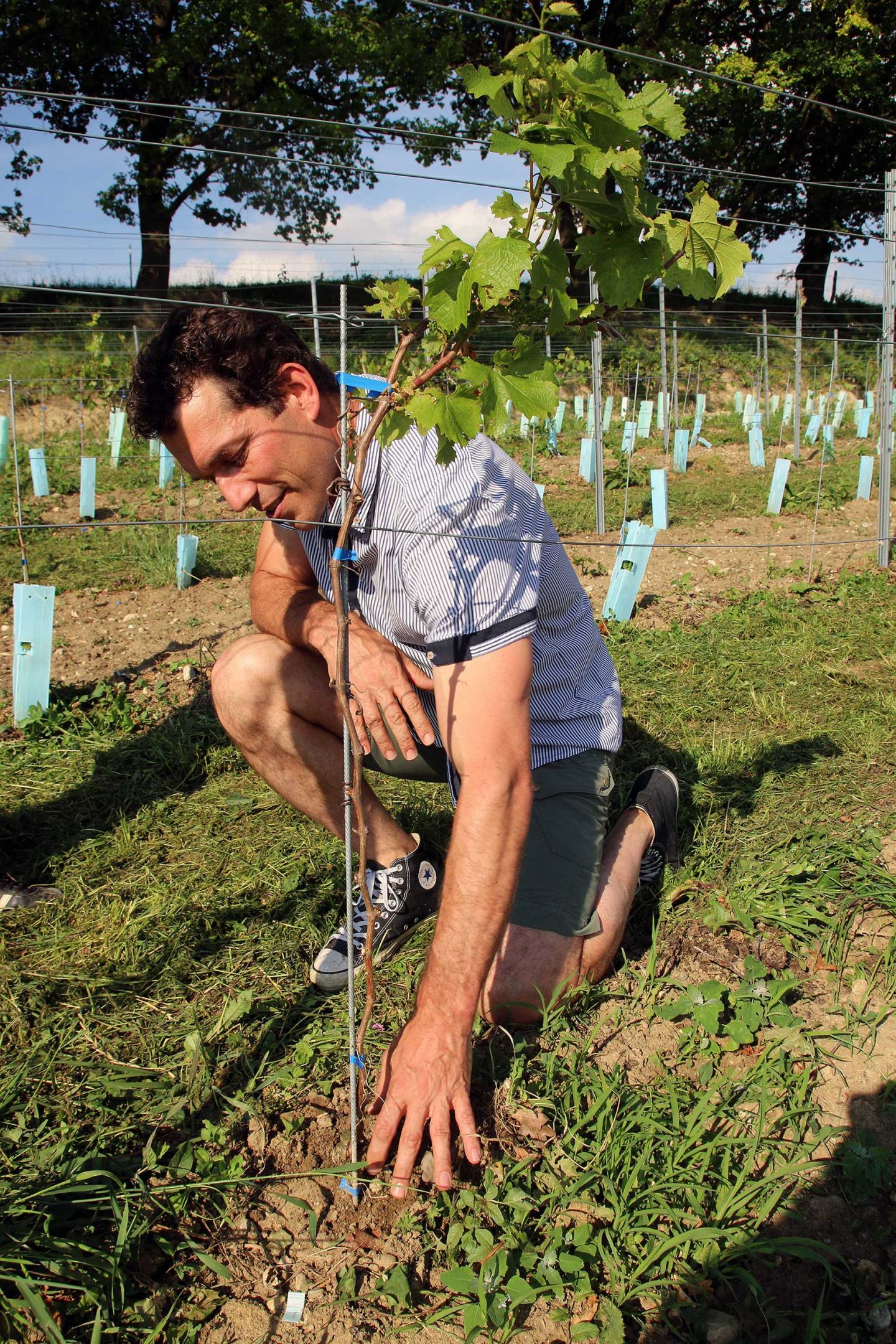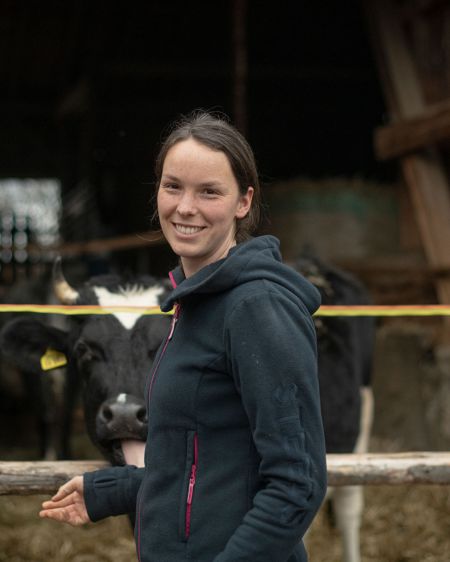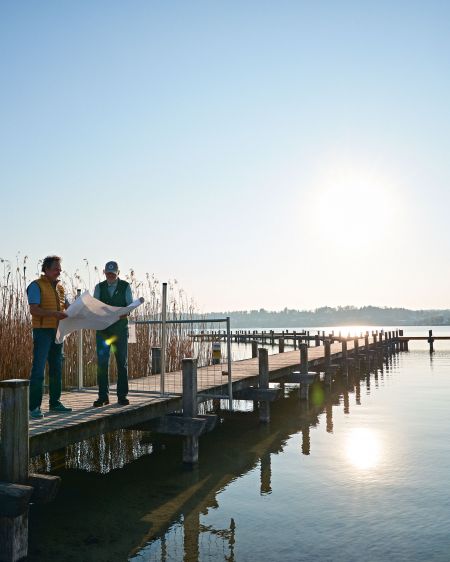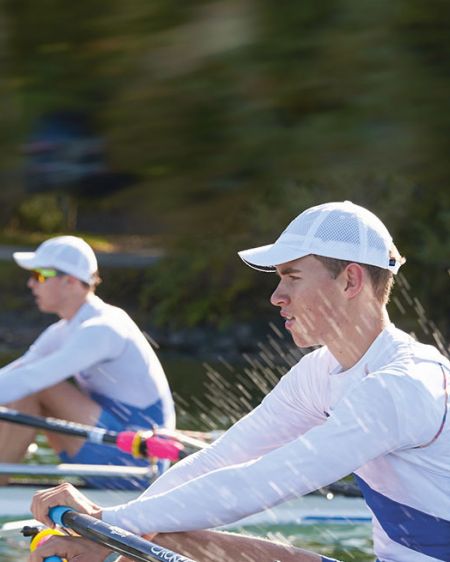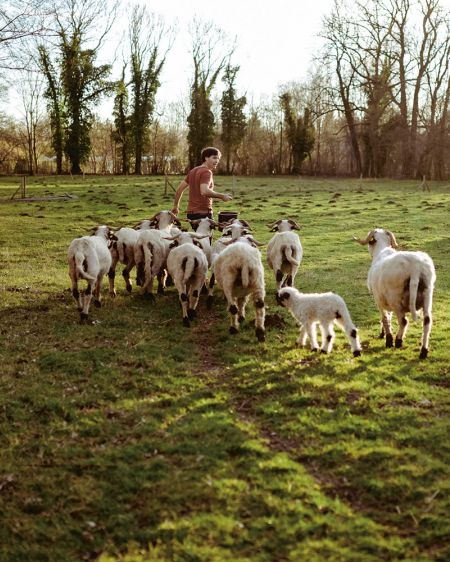Winegrowing at Lake Ammersee
The qualified agriculturist Uli Ernst loves challenges. His latest idea: winegrowing in the Fünfseenland. For the SeeMagazin author Alissa Selge visited him in Utting at the Ammersee.
The trained farmer Uli Ernst will certainly not get bored so quickly: Together with his wife Corinne he runs an organic farm, an adventure labyrinth, a design high ropes course and a young cattle breeding farm. They also look after their two children, sell organic eggs from mobile chicken coops, flowers and organic sunflower oil. Uli Ernst also teaches business training for farmers in German-speaking countries and in Africa. There he also volunteers to look after unemployed and landless agricultural students who are being trained as beekeepers. In his spare time he attends sculpture camps in Italy, does gymnastics and holds two other honorary posts. Have we forgotten anything? Yes, you could say that Uli Ernst loves versatility.
Now he adds another crazy passion: winegrowing.
"We hope to harvest the first grapes in October 2021. If everything goes well, the result is a fresh, fruity white wine."
Uli Ernst
What sort has it turned out to be?
A Sauvignac – this is a hybrid of a Sauvignon Blanc, a Pinot Blanc, and a wild variety, which fortunately is very fungus-resistant. If everything goes well, the result is a fresh, fruity white wine.
What are the steps until we can hold a finished bottle of wine in our hands?
In 2018 we planted several thousand vines on 9000 square meters. At the moment we are still in the process of growing the main trunks of the vines into healthy and strong plants. This includes pruning back every single plant and weeding the rootstock. Without pesticides, with a pickaxe and by hand. We hope to harvest the first grapes in October 2021.
You can read the whole interview in the latest issue of the SeeMagazin (only in German).
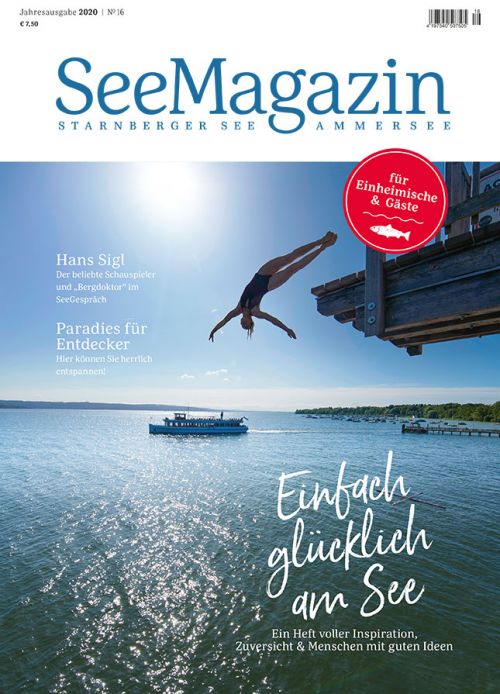
We love the Fünfseenland in the south of Bavaria. That is why we collect the uniqueness of the region in beautiful pictures and stories once a year in our SeeMagazin. We meet interesting people who are enthusiastic and make their passion their profession. The motto of the 2020 issue: "People, missions, masterpieces" – because it is not only the nature, but also the people, who make the Fünfseenland special.
